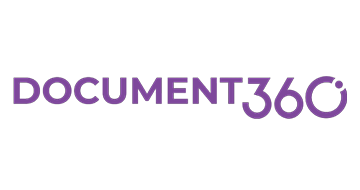
| Starting Price | $20 / month |
|---|---|
| Pricing Model | Subscriber based |
| Free Trial | Yes |
| Free Version | No |
Discover the power of efficient knowledge management with the best value software solutions. Streamline information sharing, improve collaboration and empower your organization to leverage its collective knowledge.
Find the best value knowledge management software at SaasGenius.com
Finding the right knowledge management software can be overwhelming. Discover our top recommendations and revolutionize your knowledge management processes.

| Starting Price | $20 / month |
|---|---|
| Pricing Model | Subscriber based |
| Free Trial | Yes |
| Free Version | No |

| Starting Price | Contact for price |
|---|---|
| Pricing model | Per User |
| Free Trial | No |
| Free Version | No |

| Starting Price | $99 per project/month (billed annually) |
|---|---|
| Pricing Model | Per Project, Subscriber based |
| Free Trial | Yes |
| Free Version | No |
Knowledge management software is an educational solution that stores confidential information, typically company-specific information, procedures, and collaborative documents, making that knowledge easily searchable and retrievable. While knowledge management systems are usually used for internal business processes, they can also have customer-facing uses.
Furthermore, knowledge management software provides a structured storage system for knowledge and a system for easy search and retrieval of information. These systems can also provide the means to disseminate knowledge to employees or clients efficiently. The best knowledge management software can also be used for collaborative working practices.
In most workplace settings, a knowledge management system stores important knowledge, which staff can access according to permissions. For regulatory reasons, many companies need to have centrally held documents accessible in the correct, up-to-date form by staff in different departments and across different sites. This software takes the stress out of making sure everything is updated simultaneously.
All businesses have a wide range of documents with different access permissions. For example, personnel files are confidential and should only be accessed by staff with special permissions. At the same time, there are things like staff handbooks, company procedures, and rules that all members of staff need access to. Many of these documents are subject to legal requirements in terms of access permissions. A knowledge management system will make these documents easily available to those that need them while maintaining security and confidentiality.
Another aspect of your business where knowledge management is important is collaborative projects involving different staff members or departments. Keeping all the documents in one place while allowing updates from different system users can make collaboration easier. A knowledge management system can also help with staff training, changes, and cover. A searchable system makes it easy for new or temporary staff to find the knowledge they need.
At SaasGenius, we apply a rigorous methodology to identify the best knowledge management software solutions. Our evaluation takes into account factors such as features, user reviews, pricing, ease of use, and customer support. Each software solution receives a score, called a Genius Score, ranging from 0 to 100. The Genius Score is calculated based on external reviews and our internal testing. You can find detailed insights into our evaluation methodology on our dedicated page.
Features vary from program to program, but some of the main features of the software are described below.
Knowledge management systems aim to provide easy yet secure access to all your company’s knowledge by all those who need it. This can include both staff and customers. This software makes information easy to find, create and manage.
The best knowledge management software provides a secure and structured repository for all company data. It also allows you to set user permissions for each user to enable access for those who need it and block it for those who don’t. You can learn more by reading our security comparison of SaaS knowledge bases and open source wikis.
Staff collaboration is a major part of most businesses these days. Whether your collaboration is in one location or across multiple sites, management software can integrate collaborative work with the central storage system to ensure security and ease of communication.
One major benefit to the company of using knowledge management software is that it saves time. Many hours are spent each year by staff searching for the right document. This software offers a simple search facility to find what you need quickly.
As well as wider benefits to the company, individual users also benefit from using these systems. Some of the most important benefits are listed below.
A knowledge management system with an integrated search facility will save you staff hours of frustration trying to source the right information. These keyword-based search engines allow users to search the content of thousands of documents to find the right information.
Because knowledge management systems allow content creation, search, and editing all in one place, much less time is lost switching between apps and becoming distracted by other things. The best knowledge management software allows users to switch between tasks without changing platforms, thus streamlining the work process and making life easier for staff.
Keep your collaboration secure with a knowledge management system. This means that every person can access collaborative documents according to their permissions. So some staff can have read-only access while others can edit and author documents. The best knowledge management software will also track document changes and who made them.
There are different pricing models available depending on which software you choose. Most software providers use a per user, per month, or per year model, so your costs will depend on the size of your business. There are a few systems with one-off fees, often per user. Prices range from $1 per user per month to around $20,000 per user one-off fee. Mid-range products range from $30-$100 per user per month. Enterprise pricing will differ, so check out your options before buying.